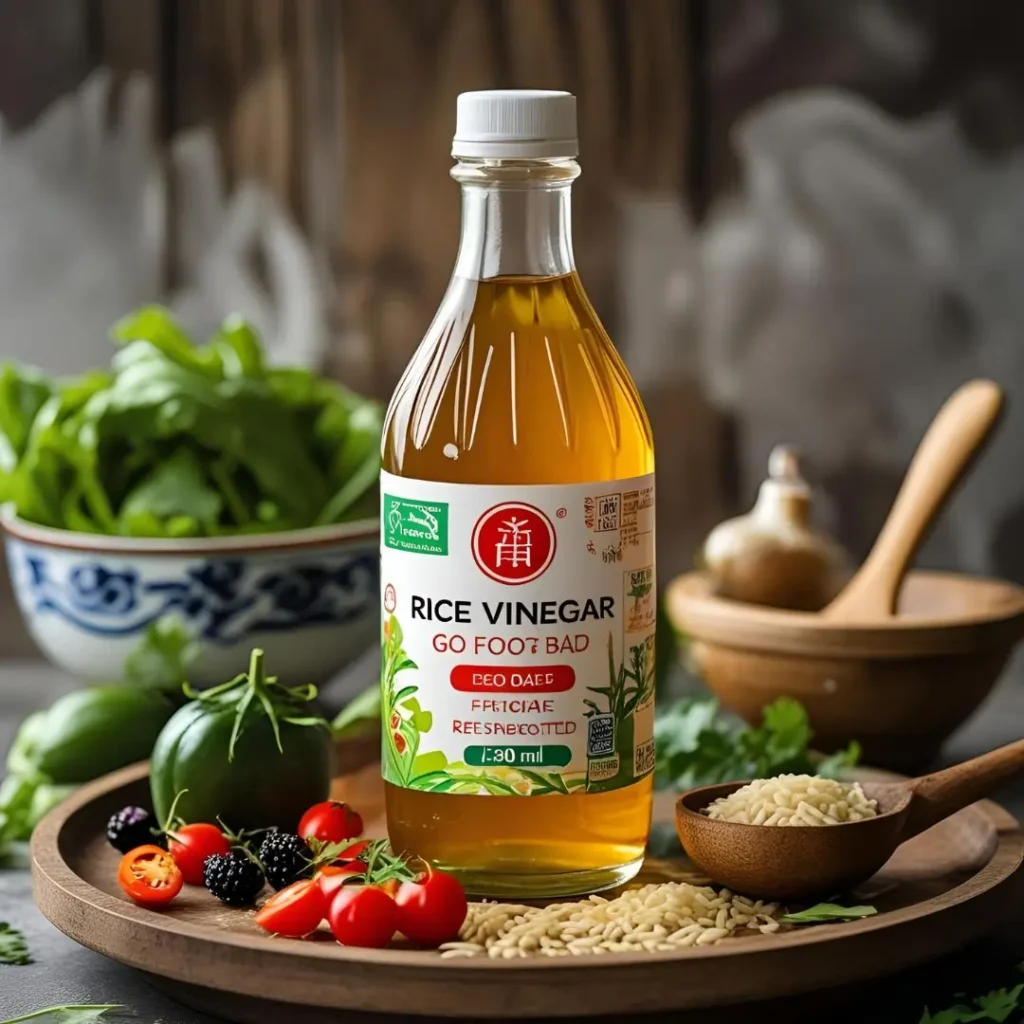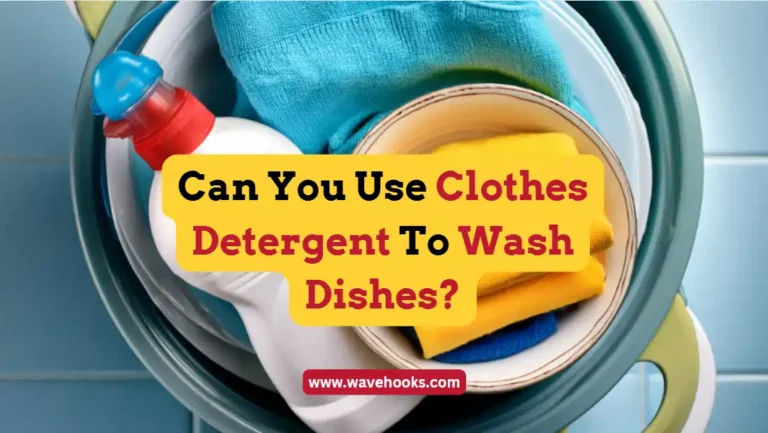Does Rice Vinegar Go Bad If Not Refrigerated?
Rice vinegar is one of the most used ingredients in kitchens around the world, especially in Asian cuisine. It enhances the flavor of dishes like sushi rice, salad dressings, stir-fries, and marinades. So, when the moment I realized that people often ask, “Does rice vinegar go bad if not refrigerated?”
I felt the need to dive deeper into this question and clear up the confusion. If you use rice vinegar regularly, understanding its storage and shelf life is crucial. Let’s explore whether rice vinegar really goes bad without refrigeration, how to store it properly, and what signs you need to watch out for to ensure your vinegar stays fresh.
Suggested Read: Will Vinegar Kill Grass? 10 Shocking Results Revealed Now!
What is Rice Vinegar, and Why is it So Popular?

Before we answer whether rice vinegar goes bad if not refrigerated, let’s first understand what rice vinegar is.
Rice vinegar is made from fermented rice. It’s used to add a mild tang and delicate sweetness to many dishes, from pickles to marinades.
The moment you add it to your recipe, you’ll notice how it elevates the flavor profile. This versatility is what makes rice vinegar a staple in homes worldwide.
Key uses of vinegar:
- Adds flavor to sushi rice
- Enhances salad dressings
- Works well in marinades for meats and vegetables
- Used in pickling recipes
When I first used rice vinegar, I was amazed at how quickly it transformed ordinary dishes. And the best part? It doesn’t require a lot of care to keep it fresh for extended periods. Does rice vinegar go bad if not refrigerated? That’s the question on everyone’s mind, but the good news is that rice vinegar is quite resilient, and you don’t have to worry about refrigeration in most cases.
Suggested Read: Does Vinegar Kill Roaches Fast? 10 Surprising Facts You Need!
How long is rice vinegar good for?
Here’s the thing, rice vinegar doesn’t really “go bad” the way milk or juice does.
Thanks to its natural acidity (around 4–7%), it’s self-preserving. If it’s unopened, you can keep it for years, literally.
Once opened, it still lasts 3 to 5 years easily, as long as it’s sealed well and kept in a cool, dark place. Unless you notice a funky smell or cloudy bits, it’s totally good to use.
I found this backed by The Vinegar Institute, and also here’s a helpful guide. So don’t throw it out too early, vinegar doesn’t expire, it just mellows with time!
Does Rice Vinegar Go Bad If Not Refrigerated? The Simple Answer
Does rice vinegar go bad if not refrigerated? The simple answer is: No, rice vinegar does not go bad quickly if not refrigerated. The reason lies in the acidity of rice vinegar. Rice vinegar, like other vinegars, contains acetic acid, which acts as a preservative. This makes it highly resistant to spoilage. Unlike many other condiments and food products, rice vinegar does not need refrigeration to remain safe and fresh for a long time.
Why rice vinegar doesn’t need refrigeration:
- High acidity naturally preserves the vinegar
- Prevents bacterial growth due to its acidic environment
- No need for refrigeration to maintain safety or flavor
When I realized that most people store rice vinegar in their fridge out of habit, I understood that the misconception comes from how we treat other food items. However, rice vinegar is different because it’s naturally preserved due to its acidity. As long as you store it properly, rice vinegar can stay good for months, even without refrigeration.
Suggested Read: How To Prepare DIY Vinegar Cleaning Spray: The Ideal Solution!
Why Rice Vinegar Doesn’t Need to Be Refrigerated
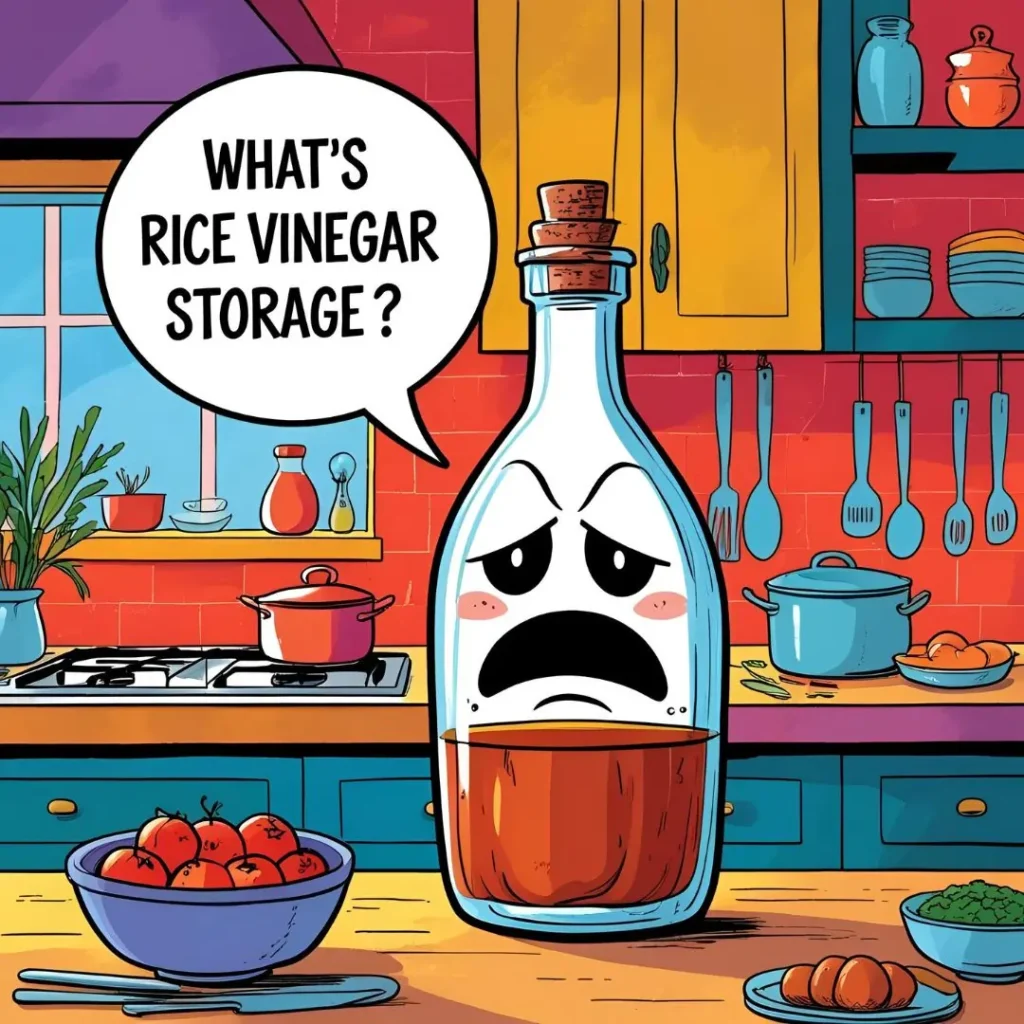
Rice vinegar’s high acidity is what makes it self-preserving. When you leave a bottle of rice vinegar on your kitchen shelf, it will remain stable for months, if not years. The acidity in rice vinegar prevents harmful bacteria and mold from growing, which is why it doesn’t need refrigeration like other perishable foods.
Factors that make rice vinegar stable:
- Acidity: The vinegar’s high acid content prevents bacterial growth.
- Long shelf life: Rice vinegar can last for years when stored correctly.
- No refrigeration needed: Unlike many foods, rice vinegar does not require refrigeration for long-term preservation.
But, does rice vinegar go bad if not refrigerated? Absolutely not, unless it’s stored improperly or exposed to extreme conditions like heat or sunlight. That’s why storing rice vinegar in a cool, dark place—like a pantry or cupboard—is the best option for maintaining its quality.
Suggested Read: Can I Add Vinegar To My Laundry For A Fresh Smell? Must Read
How to Store Rice Vinegar for Maximum Freshness

Proper storage is crucial to maintaining the best quality for your rice vinegar. So, does rice vinegar go bad if not refrigerated in the long term? The answer is no, but improper storage could impact its taste and aroma. Here’s how you can ensure your rice vinegar stays fresh for as long as possible:
- Seal the Bottle Tightly: Once opened, make sure the cap of the rice vinegar bottle is tightly sealed. Exposure to air can cause it to lose its sharp, tangy taste over time.
- Store in a Cool, Dry Place: Always store rice vinegar in a cool, dry place, away from direct sunlight or heat sources. A pantry or kitchen cabinet works great for this.
- Avoid Storing Near Heat: Rice vinegar should never be stored near your stove, oven, or other heat-producing appliances. Excess heat can affect its flavor and quality, making it less effective for cooking.
- Keep it in the Original Bottle: If possible, store rice vinegar in its original bottle, as these bottles are usually designed to protect the vinegar from light and air. However, if you need to transfer it to another container, ensure it’s airtight and dark to prevent exposure to light.
Suggested Read: Why Does Malt Vinegar Smell Bad? Unmasking The Hidden Cause!
How Long Does Rice Vinegar Last?
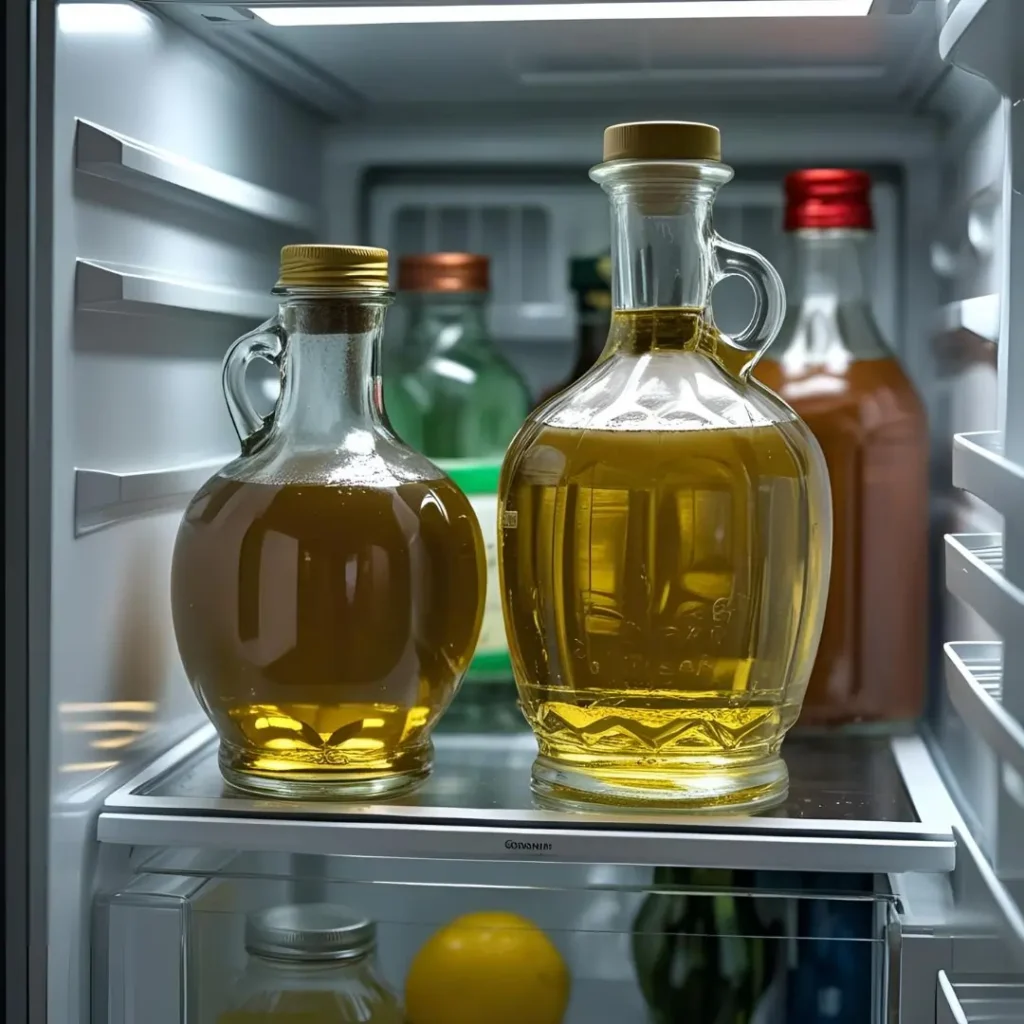
You might be asking, does rice vinegar go bad if not refrigerated for years? Not necessarily. Even without refrigeration, rice vinegar can last for up to 2-3 years when stored correctly. It doesn’t spoil in the traditional sense, but its flavor and acidity may diminish with age.
Shelf life of rice vinegar:
- Room temperature: Can last 2-3 years when stored in a cool, dry place.
- Refrigeration: While not necessary, refrigeration can help preserve its flavor for an even longer period.
If you’re concerned about freshness, a quick taste test will tell you all you need to know. If the flavor still packs the punch it did when you first opened it, your rice vinegar is still good to go. But if it’s lost its tang or developed off-flavors, it may be time to replace it.
Suggested Read: What Does Malt Vinegar Taste Like? 5 Flavorful Facts Inside!
Signs That Rice Vinegar Has Gone Bad

While rice vinegar has a long shelf life, it’s important to recognize the signs that it may have started to lose its quality. Here’s what you need to watch for:
- Changes in Flavor: If your rice vinegar tastes flat, overly sour, or just doesn’t have the same punch as when it was fresh, it might not be as good anymore.
- Sediment or Cloudiness: Rice vinegar can sometimes develop sediment or appear cloudy over time. While this doesn’t necessarily mean it’s gone bad, it’s a sign that the vinegar is no longer at its peak.
- Off Smell: Vinegar should have a sharp, acidic smell. If it starts to smell off or rancid, it’s best to discard it.
- Changes in Color: While some rice vinegars may darken slightly over time, drastic changes in color could indicate that the vinegar’s quality is deteriorating.
Suggested Read: Will Vinegar Kill Mosquito Larvae: The Real Truth Unveiled!
Can You Refrigerate Vinegar to Prolong Its Shelf Life?
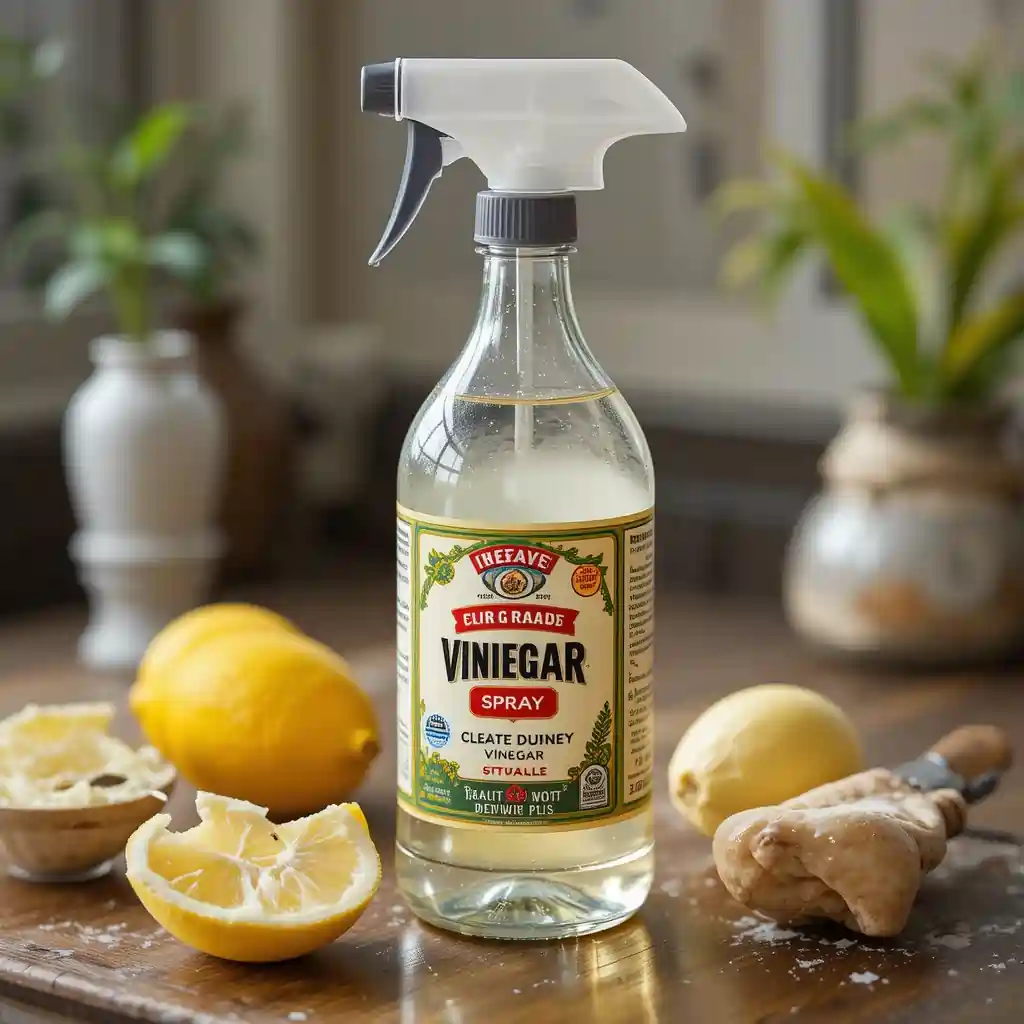
Does rice vinegar go bad if not refrigerated? As we’ve seen, it does not. However, refrigeration can help preserve the vinegar’s flavor if you don’t use it regularly. By keeping rice vinegar in the fridge, you can extend its freshness for an even longer period, though this is more about preserving flavor than preventing spoilage.
I started refrigerating my rice vinegar after realizing that refrigeration can slow down the process of flavor deterioration, but it’s not absolutely necessary for most households.
Can You Freeze Rice Vinegar?
Freezing rice vinegar is not recommended. While freezing won’t cause the vinegar to spoil, it can alter the texture and flavor. Freezing can cause changes in the acidity and overall profile of the vinegar, making it less effective in cooking. Therefore, it’s better to keep your rice vinegar at room temperature or in the fridge, but not in the freezer.
Benefits of Rice Vinegar in Your Kitchen
Rice vinegar isn’t just a pantry essential, it’s also packed with benefits. Here’s why it’s so widely used:
- Health Benefits: The acetic acid in rice vinegar can help regulate blood sugar levels, promote digestion, and support weight loss.
- Versatility: It’s great for pickling, making sauces, and adding flavor to both hot and cold dishes. Rice vinegar is also commonly used in sushi rice and dressings.
- Preservative Qualities: Thanks to its acidity, rice vinegar can preserve foods for longer periods, making it ideal for use in recipes like pickles and marinades.
Suggested Read: Does Vinegar Kill Spiders: Uncover 10 Real Surprising Facts!
Conclusion
So, does rice vinegar go bad if not refrigerated? The answer is clear: No, rice vinegar doesn’t go bad if not refrigerated. Its natural acidity makes it self-preserving, and with proper storage, it can last for years without refrigeration. While refrigeration can help prolong its flavor, it’s not a must.
Now that you understand the true nature of rice vinegar’s shelf life, you can confidently store it in your pantry, knowing it will remain a versatile, flavorful ingredient for all your cooking needs.
Suggested Read:
Why Does Malt Vinegar Smell Bad? Unmasking The Hidden Cause!
Can You Freeze Tortillas? What Happens Will Truly Shock You!


